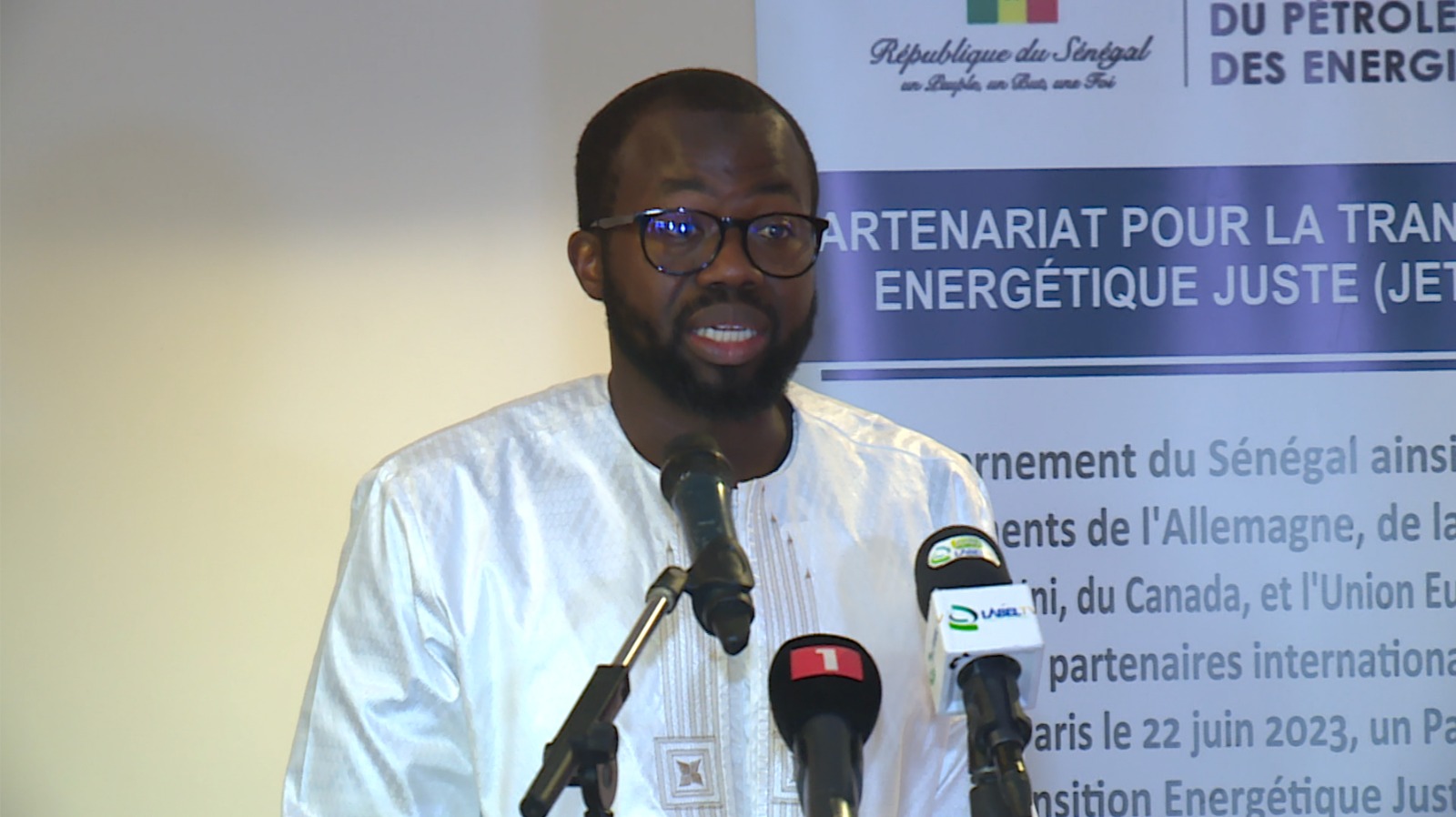NEWS
Senegal joins JETP's multilateral approach

The Just Energy Transition Partnership (JETP), set up by the Senegalese government and several technical and financial partners, will be implemented in the country to reconcile economic development with reducing the effects of climate change, according to officials in Dakar
A workshop to launch the initiative was held in the Senegalese capital.
The JETP, with funding of 2.5 billion euros (1,639 billion 892 million 500 thousand CFA francs), was signed by the parties involved last June in Paris.
To accelerate the deployment of renewable energies, international partners and multilateral development banks will mobilize new and additional financing of 2.5 billion euros over an initial period of three to five years, starting this year," said Jean-Marc Pisani, head of the European Union delegation in Senegal, speaking about the terms of the agreement.
He took part in the launch of the Partnership for a Just Energy Transition, which was sealed on the sidelines of the Paris summit for a new global financial pact last June.
JETP members include Canada, France, Germany, the UK and the European Union.
Additional funding can be allocated to the international partnership, "during and beyond the initial period, to support Senegal's ambitions", assured Jean-Marc Pisani.
A "gradual replacement" of oil-fired power plants by gas-fired plants
JETP will "support Senegal's efforts to achieve universal access to energy and consolidate a low-carbon, resilient and sustainable energy system", said Christine Fages, French Ambassador to Senegal.
Speaking at the same time on behalf of Germany, Ms. Fages asserted that the partnership would "address common challenges" faced by the member states. She spoke of the need to "reconcile economic development and the fight against climate change" in implementing this initiative.
Cheikh Niane, Secretary General of the Ministry of Petroleum and Energy, reports that work has begun on the JETP investment plan. The plan will be made available to partners in June 2024, according to Mr. Niane..
"This investment plan will bring together the projects to be implemented in relevant sectors and the appropriate financing mechanisms" to implement the partnership, he said.
Cheikh Niane reminded backers that Senegal has already embarked on a plan to modernize its energy sector, with the aim of "producing quality energy, in sufficient quantity and at a competitive cost".
To achieve this, he continued, Senegal will be working to "diversify energy sources, in particular by integrating renewable energies and soon implementing the gas-to-power strategy", in other words, transforming gas into electricity. According to the Secretary General of the Ministry of Petroleum and Energy, this transition should facilitate the "gradual replacement" of oil-fired power plants by gas-fired ones. With this in mind, he explained, Senegal is currently striving to derive 30% of its 1,787 megawatts from renewable energies. In this respect, the Senegalese government's objective is to ensure that renewable energies account for 40% of the electricity mix by 2030, added Mr. Niane.
Some participants insisted on the need to take into account the context and economic specificity of each country in terms of energy transition.
Avoiding mistakes made in other countries
In their view, this will avoid the mistakes made by JETP members South Africa and Indonesia.
In South Africa, whose economy is heavily dependent on the coal industry, the international partnership could lead to the loss of some 50,000 jobs, the workshop heard.
Senegalese MP Abass Fall, who spoke of South Africa's concerns, asked the JTEP what would be the most appropriate energy transition strategy for Senegal, as it prepares to produce oil.
Senegal will soon have its first barrels of oil, and at the same time, "we're asking [governments] to move towards clean, low-carbon energies", stressed Mr. Fall, Chairman of the National Assembly's Energy and Mineral Resources Committee.
Libasse Ba, Chairman of Senegal's National Committee on Climate Change, believes that the "transversality" of the energy issue needs to be taken into account. According to him, it brings together economic, environmental and legal aspects all at the same time.
According to a representative of the non-governmental organization Enda Tiers-Monde, this cross-cutting approach should make it easier to take Senegal's priorities into account in international negotiations.
Yaye Cathérine Diop Dieng, head of the energy transition unit at the Ministry of Petroleum and Energy, pointed out that the partner countries mentioned did not have the same energy transition context as Senegal.
She assured the representatives of other countries and of the structures concerned in Senegal that the Ministry was taking into account the scientific contributions of the private sector, civil society and the world of research.
-

 ANALYSIS1 an ago
ANALYSIS1 an agoThe 3 African countries richest in natural resources
-

 NEWS11 month ago
NEWS11 month agoTop 10 des pays africains producteur de l’or : Mali 2-eme, Burkina Faso 3-eme
-

 FOCUS ONA1 an ago
FOCUS ONA1 an agoThe 10 largest oil refineries in Africa
-

 FOCUS ONA11 month ago
FOCUS ONA11 month agoTop 10 oil producers in Africa in 2023
-

 NEWS2 ans ago
NEWS2 ans agoRanking of oil producers: Here are the Top 10 African countries.
-

 NEWS8 month ago
NEWS8 month agoAfrica's 10 largest natural gas production fields.
-

 NEWS2 ans ago
NEWS2 ans agoTop 20 oil producing countries in 2022
-

 NEWS10 month ago
NEWS10 month agoIvory Coast: Eni to deploy a cylindrical FPSO and a converted FSO on the Baleine oil field












